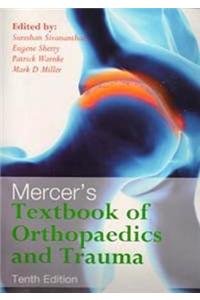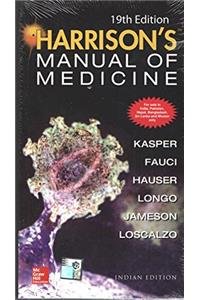Only logged in customers who have purchased this product may leave a review.
Sale!
Creolizing Culture (Hardcover) | Released: 2006
By: Maria Grazia Sindoni (Author) Publisher: Atlantic33.00% Off Original price was: ₹695.00.₹466.00Current price is: ₹466.00.
You save ₹229.00
In the past few years much theoretical debate has explored several cultural issues in the Anglophone Caribbean, focusing on the central experience of colonialism as well as on the contemporary postcolonial condition and the possible formation of neo-colonial configurations. Some of the constituent traits of the Caribbean experience are dealt... Read More
In stock
Ships within 1-2 Business Days

100% Orginal Books

Easy Replacement

Certified product

Secure Checkout

On time delivery
Author:
![]()
Maria Grazia Sindoni
Publisher Name:
![]()
Atlantic
Language:
![]()
English
Binding:
![]()
(Hardcover)
About The Book
In the past few years much theoretical debate has explored several cultural issues in the Anglophone Caribbean, focusing on the central experience of colonialism as well as on the contemporary postcolonial condition and the possible formation of neo-colonial configurations.
Some of the constituent traits of the Caribbean experience are dealt with in this study, such as the relationship between the Caribbean and Great Britain from a cultural and literary perspective in the twentieth century, multiculturalism and ethnicity, the interplay of orality and literature and an investigation of linguistic issues, in particular the creolization of the English language under world influences.
Different strands are brought together in the analysis of Sam Selvons London trilogyThe Lonely Londoners, Moses Ascending and Moses Migrating, considering questions of identity for ex-colonials in the crucial years between the end of World War II and the 1980s in Britain, relationships between European versus African and Indian cultural heritage, clash of cultures as represented via language, ideas of national identity as an imaginative process also reflecting dynamics of power inside society.
The use of Creole represents an ideal clinging to Caribbean modes of cultural survival, which is also buttressed by the postcolonial contamination of the traditional Western bourgeois genre, the novel. After the colonial demise, the genre of the novel mirrors approaches of communication more oral-oriented than those linked to Western written aesthetic values, and the strategies used by Selvon are surveyed to show the interrelationships between language, power, literature and cultural identities. The London trilogy is analysed according to linguistic, literary and cultural paradigms, shedding lights on the relevance of Selvons work for the construction of a culturally independent Caribbean literature.
It is hoped that the present book will prove immensely useful to the students and researchers of English literature concerned with the works of Sam Selvon. While the teachers of the subject will consider it an ideal reference book, the general readers will find it highly interesting.Table of Contents: 1. Voyage In and Voyage Out: Shifting Identities and Caribbean Diasporas; 1.1 The arrival. Colonization and slavery; 1.2 Identity formation and national consciousness; 1.3 The racialization of the black problem in Great Britain in the twentieth century; 1.4 Migrant and diasporic identities in the postcolonial world; 2. Voices within the Lines: Orality and Literature in the Caribbean; 2.1 Orality and writing: some preliminary remarks; 2.2 The relevance of orality in the Caribbean literary tradition; 2.3 Performance, narrator and audience; 2.4 Calypso, Carnival and the dialectic of reputation and respectability; 3. Anglophone Caribbean Creole and its Literary Usage in the Twentieth Century; 3.1 Creole: dialect or language? Reflections on language-power dynamics in the colonial space; 3.2 Colonial travellers and settlers in the New World and broken English; 3.3 Linguistic encounters: Pidgin and Creole; 3.4 The creation of a linguistic standard: orality and literacy; 3.5 Creole features in Selvons short story Down the Main; 4. The Lonely Londoners and Their Rights of Passage; 4.1 The genesis of the text. Cultural identity and fiction; 4.2 Structural looseness or subversion of the genre? Reflections on the use of the episodic configuration of the text; 4.3 Trickster figures and their logomachies for fun; 4.4 Verbal rituals in postcolonial liturgies; 5. Moses Ascending: The Emergence of Writing; 5.1 From The Lonely Londoners to Moses Ascending: changed social context in 1970s Britain; 5.2 Linguistic acrobatics and the encyclopaedic novel; 5.3 Rewriting a colonialist novel: a satiric reversal of Robinson Crusoe and the legacy of imperial culture; 5.4 Orality erased and the emergence of writing: postmodern pastiche or postcolonial satire?; 6. Moses Back Home: Tourist, Traveller or Colonizer?; 6.1 Impossible returns: Migratory movements and the metamorphosis of identity; 6.2 From roots to routes: middle passages and resistance literature; 6.3 Carnival as controlled transgression. Mimicry, impersonation and the self in disguise; 6.4 Narratives of exiles. Transnational experiences and the quest for origins; Conclusions; Bibliography










Reviews
There are no reviews yet.